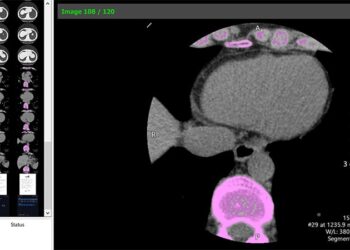Thousands of patients in England with early-stage chronic heart failure could benefit from earlier access to effective drug therapies under new draft guidance from the National Institute for Health and Care Excellence (NICE).
The guidance, which updates NICE’s 2018 clinical recommendations, advises earlier treatment for heart failure with reduced ejection fraction ( HFrEF).
NICE said that clinical practice is changing and that medicines should be offered up to a year earlier in the treatment pathway.
The changes could prevent 3000 deaths and 5500 hospital admissions annually in England, the regulator estimated.
Earlier Use of Combination Therapies
The four pillars of treatment for HFrEF include:
- Angiotensin-converting enzyme inhibitors (ACEI)
- Beta-blockers
- Mineralocorticoid receptor antagonists
- SGLT2 inhibitors
NICE said these drugs should be prescribed earlier, without the need to optimise the dose of any one medicine before introducing another.
SGLT2 inhibitors such as empagliflozin and dapagliflozin should now be offered at the start of the treatment pathway, rather than after other medications have been fully titrated — a process that could take over a year.
NICE also advised that angiotensin receptor-neprilysin inhibitors (ARNI) should be offered if a person cannot tolerate an ACEI, rather than only to patients stabilised on ACEI or angiotensin receptor blockers (ARBs).
Both SGLT2 inhibitors and ARNI could now be initiated by GPs with advice from heart failure specialists, potentially speeding up patient access.
Responding to Evolving Evidence
“We’ve been able to review the emerging evidence quickly to keep pace with changes in the treatment landscape and make recommendations that will widen access to effective treatments,” said Eric Power, deputy director in NICE’s centre for guidelines.
He added that the new approach could help reduce emergency hospital admissions and improve quality of life for people living with heart failure.
Updated Diagnostic and Monitoring Advice
NICE also updated guidance on diagnosis and monitoring, particularly for iron deficiency and anaemia in patients with HFrEF.
Clinicians should:
- Assess iron status and check for anaemia using transferrin saturation (TSAT), serum ferritin, and haemoglobin.
- Consider intravenous iron for patients with haemoglobin < 150 g/L and TSAT < 20% or ferritin < 100 ng/mL
If iron deficiency anaemia is found, alternative causes beyond heart failure should be investigated.
Revised Biomarker Recommendations
In addition, NICE advised clinicians to be aware that:
- An N-terminal pro B-type natriuretic peptide level < 400 ng/L (47 pmol/L) in an untreated person makes a diagnosis of heart failure less likely.
- The serum natriuretic peptide level does not differentiate between heart failure with preserved ejection fraction, heart failure with mildly reduced ejection fraction, and HFrEF.
- Obesity; African or African-Caribbean ethnic background; or treatment with a diuretic, an ACEI, an ARNI, an ARB, a beta-blocker, or a MRA could reduce serum natriuretic peptide levels.
High natriuretic peptide levels may also be caused by non-cardiac conditions such as chronic obstructive pulmonary disease, diabetes, sepsis, and liver or kidney disease.
Heart Failure Prevalence
Almost 1 million people in the UK are currently living with heart failure, with 200,000 new diagnoses each year.
The average age at diagnosis is 76. Rising life expectancy and obesity are driving the increased incidence and prevalence of the disease.
Rob Hicks is a retired National Health Service doctor. A well-known TV and radio broadcaster, he has written several books and has regularly contributed to national newspapers, magazines, and online publications. He is based in the United Kingdom.
Source link : https://www.medscape.com/viewarticle/nice-recommends-earlier-treatments-chronic-heart-failure-2025a1000flk?src=rss
Author :
Publish date : 2025-06-11 13:18:00
Copyright for syndicated content belongs to the linked Source.














